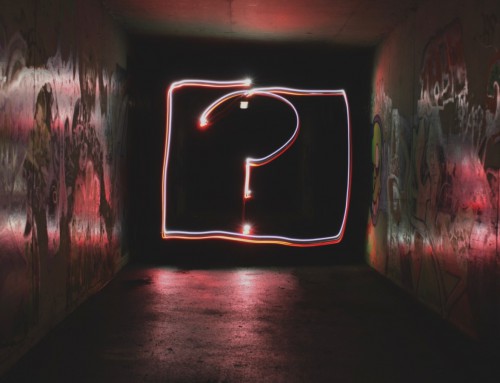If you believe the human race is becoming increasingly more cynical, it’s hard to blame you for thinking that. Bad things happen in the world and we use this to justify a collective consciousness that some people are objectively bad and that some aspects of life are doomed or prone to disaster. And the presence of issues like racism, homophobia, and sexism, amongst plenty of others, also works to highlight a general lack of empathy.
In 2018, 51% of people in the UK thought empathy was on the decline, compared to only 12% who thought it was increasing. The takeaway: we’re a cynical bunch. We like to assume the worst as a form of self-protection. It saves us from feeling so blindsided when bad things happen and it’s normal for the brain to do this because it’s just another form of survival. It’s what it was built for. By expecting the worst, you feel you can’t be disappointed and harden yourself against anything ‘bad’.
But on the individual level, cynicism is even more complicated. We often laugh it off, labelling cynicism as a ‘cute’ or ‘quirky’ trait. Roll our eyes at Sarah and say “oh, isn’t she just so cynical”. But putting our energy into being cynical over trying to be empathetic and compassionate does more harm than good. And the majority of this harm we inflict will be to ourselves.
A non-symbiotic relationship
Being cynical is the antithesis of empathy. Cynicism encourages us to see the worst in people. We always assume ulterior motives, disingenuous behaviour, and anticipate negativity from the people and situations we encounter.
Because of this, adopting a cynical outlook stops any chance of empathy in its tracks. After all, how can we see something from someone else’s perspective when we’re already expecting them to act a certain way? We end up only allowing ourselves to see the bad in people, everything that reinforces our original, cynical expectations.
Cynicism as protection
Most cynical attitudes form because we’re not dealing directly with our hurt or pain. Rather than working through our emotions as soon as an experience takes place, we allow them to fester, harden and inform our future expectations.
In this sense, cynicism becomes a form of self-protection against what we feel we can’t control. A way of avoiding further hurt, disappointment, fear, or pain. Your cynical outlook – which can be markedly out of touch and in complete opposition to the actual world before you – becomes intertwined with your entire belief system. It becomes the only reality you allow yourself to see.
And as humans, we don’t like to even consider the thought of being wrong. We push forward with our own, out-of-touch belief systems, willing everything we experience to justify and reinforce them so we can be reassuringly right. We subconsciously seek out people or experiences that prove our expectations, because being wrong would be too hard to take.
Empathy as hard work
Unlike cynicism, empathy requires us to challenge our view of the world. It goes against our natural instinct to be right and label other people as wrong. It asks us to view situations and experiences from another perspective, one that might be the polar opposite of our own and that can be scary as we are directly challenging our own views and coping mechanisms.
Breaking away from cynical thinking can seem like a difficult, complicated process. While your cynicism seems just – for example, in protecting yourself from being dominated by people or toxic relationships – it can also very quickly undermine everything else that’s good in your life, such as healthy relationships. But starting to change this way of thinking goes against everything we’ve convinced ourselves is right, our belief systems, and the way we see ourselves and the world around us.
Showing others empathy means identifying the parts of them that you disagree with. Which will consequently encourage you to recognise where these things sit within yourself. No one can have all the good and no bad. So your point of contention with someone else’s behaviour will often have its own space in your own behaviour and thinking. Because of this, embarking on a journey to be more empathetic requires a certain reckoning with your inner self.
A great place to start is by looking at the story you have told yourself about what the other person is doing or has done. It’s only what you think; recognise it really is just that – your version of events. This process grows our mental capacity and improves our mental health. When we recognise the stories we live by, we can recognise that we often don’t truly know why someone does what they do or even if it’s what we are seeing.
The importance of being empathetic
Showing empathy to those who have wronged us is less about them. In fact, it has very little to do with them at all. It’s not about giving in, letting them win, or in any way accepting their poor behaviour. It’s simply about freeing yourself from that endless cycle of negativity, pain, and anger.
Holding onto a grudge and allowing it to taint your belief systems and future experiences is only hurting yourself. By showing empathy, you move past this. You deal with all the feelings, hurt, and pain once and for all. And then you can more effectively move on and let go.
No one can pretend this isn’t a long journey. You can’t reverse a whole lifetime of thinking and behavioural patterns overnight. But over time, this does become easier. Viewing others empathetically and dealing with trauma or pain straight away become habits. And as a result of letting your cynicism go, you reduce the way negative expectations impact on your life. Instead of assuming and expecting the worst, you can move forward with a much more positive and open mindset.




